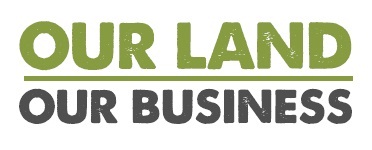Source: ICIJ
March 21, 2016
Sasha Chavkin
A $600 million World Bank loan to Ethiopia’s authoritarian government lacks proper oversight and “reinvents” a previous loan that was used by the Ethiopian regime to finance violent evictions of indigenous people, a new report by the human rights advocacy group The Oakland Institute charges.
The report also contends that the U.S. Treasury Department violated orders from Congress to oppose any development project in Ethiopia that contributes to forced evictions. The Treasury Department’s representative on the World Bank’s governing board voted in favor of the new project, despite its similarity to the last one, the report says.
“It’s pretty much a mirror image of the old program,” said Anuradha Mittal, the executive director of the Oakland Institute.
The World Bank declined to answer detailed questions about its recent loan, but referred ICIJ to project documents that describe new conditions for citizen engagement and financial oversight that are linked to disbursement of the money. The U.S. Executive Director at the World Bank and a spokeswoman for the Treasury Department did not respond to ICIJ’s email and telephone inquiries.
The World Bank’s loan comes in the midst of a crackdown on dissent by Ethiopia’s federal government. Activists are being jailed and dozens of people have been killed by federal forces firing live ammunition into protests, according to Human Rights Watch.
Felix Horne, an Ethiopia researcher for Human Rights Watch, cited the case of Omot Agwa, a former translator for the World Bank who was charged under Ethiopia’s infamous Anti-Terrorism Law after helping the bank’s investigators probe allegations of forced evictions of indigenous people linked to a previous project. Agwa has been in prison for a year while the World Bank has declined to speak out publicly on his arrest.
“In Ethiopia there is zero space to express dissent,” Horne said. “Anyone who is brave enough to do that at the low end ends up being harassed, and at the high end is charged under the Anti-Terrorism Law.”
View Full Article at ICIJ

World Bank Resurrects Program Tied to Evictions, Study Claims
Source: ICIJ
March 21, 2016
Sasha Chavkin
A $600 million World Bank loan to Ethiopia’s authoritarian government lacks proper oversight and “reinvents” a previous loan that was used by the Ethiopian regime to finance violent evictions of indigenous people, a new report by the human rights advocacy group The Oakland Institute charges.
The report also contends that the U.S. Treasury Department violated orders from Congress to oppose any development project in Ethiopia that contributes to forced evictions. The Treasury Department’s representative on the World Bank’s governing board voted in favor of the new project, despite its similarity to the last one, the report says.
“It’s pretty much a mirror image of the old program,” said Anuradha Mittal, the executive director of the Oakland Institute.
The World Bank declined to answer detailed questions about its recent loan, but referred ICIJ to project documents that describe new conditions for citizen engagement and financial oversight that are linked to disbursement of the money. The U.S. Executive Director at the World Bank and a spokeswoman for the Treasury Department did not respond to ICIJ’s email and telephone inquiries.
The World Bank’s loan comes in the midst of a crackdown on dissent by Ethiopia’s federal government. Activists are being jailed and dozens of people have been killed by federal forces firing live ammunition into protests, according to Human Rights Watch.
Felix Horne, an Ethiopia researcher for Human Rights Watch, cited the case of Omot Agwa, a former translator for the World Bank who was charged under Ethiopia’s infamous Anti-Terrorism Law after helping the bank’s investigators probe allegations of forced evictions of indigenous people linked to a previous project. Agwa has been in prison for a year while the World Bank has declined to speak out publicly on his arrest.
“In Ethiopia there is zero space to express dissent,” Horne said. “Anyone who is brave enough to do that at the low end ends up being harassed, and at the high end is charged under the Anti-Terrorism Law.”
View Full Article at ICIJ